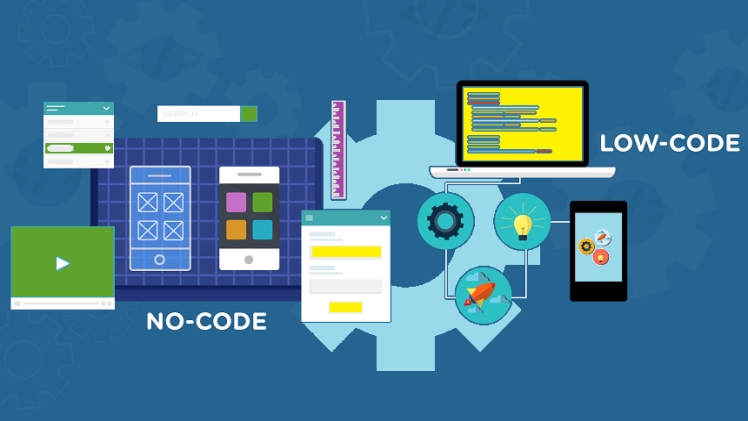When it comes to designing flexible apps for specific purposes, low-code development makes it easier than ever to do so.
An increase in the ability to move quickly.
Operating at digital speed requires creating the app features that customers need to function efficiently across numerous platforms, including smartphones and tablets. Smartphones and desktop PCs should be able to access data, collaborate, and use apps equally for low code app development tools.
Reduced expenses
Because of the capacity to create more apps in a shorter period, costs drop. It’s not the sole factor. In addition to minimizing hiring costs, low-code development eliminates the need for more developers. In addition, the correct low-code platform can improve productivity for everyone in the organization, not just IT for rapid application development model.
Productivity is higher.
We can now build more apps in a shorter amount of time, thanks to low-code development. Due to low-code growth, time is no longer a hindrance to meaningful innovation.
An improved level of client service
More than just the IT department is affected by low-code development. As a result of more incredible speed, customers will have a better experience. With low-code action, firms can swiftly respond to changes in the market or client demands.
Risk management and governance that works.
Which organization can cope with the ever-changing regulatory landscape? To meet regulatory criteria and meet timelines, low-code development enables rapid change on mendix vs powerapps vs outsystems vs Wavemaker pricing.
It’s easy to adapt to new situations.
Applications can be easily modified and adapted to meet new requirements thanks to low-code development. As a result of the lack of sophisticated coding, the low-code product allows for quick and easy changes when they are needed.
More incredible speed in transforming.
It’s time for a change in today’s digital world! When designing great, modern business apps, low-code development takes the complexity out of the equation. A reduction in complexity also ensures a smoother voyage.
Low-code benefits enable firms to adapt and respond more quickly and effectively to rapidly changing business situations.
In recent years, low-code app development has gained a lot of popularity, and for a good reason. App development for both web and mobile is now easier for individuals with little or no experience. Low-code development’s progress and benefits have been witnessed first-hand by the members of Forbes Technology Council. Fourteen of them explain their favorite “pro” of low-code and why.
Low Entry Barrier, Costs, And Deployment Times
In addition, low-code development will reduce the barrier to entry, costs, and deployment time.
Integrating the past
Low-code platforms are well-known for increasing the speed of app development. For the integration of legacy mainframe systems, low-code platforms are offered. Faster development, robust solutions, and the capacity to swiftly adapt to new requirements are all advantages they provide. – GT Software’s Steve Hassett Technology leaders and CIOs from around the world are invited to join the Forbes Technology Council. Does this mean that I’m eligible?
Non-technical audiences can assemble solutions quickly.
A game-changer in a hyper-personalized world can quickly create new products that operate identically throughout an omnichannel ecosystem. By enabling a broader, non-technical audience to construct solutions swiftly, low-code software platforms speed up digital programming. Another reason for excitement is the fact that traditional organizational barriers are being broken down. NEORIS’ Anthony DeLima
Increasing the speed of development.
With low-code app development, creativity is more accessible. You don’t have to know how to code to produce a digital product now! Aside from that, it also speeds up development. Product designs that perform flawlessly and look great may now be designed in minutes instead of weeks. What a paradigm shift! Dogtown Media LLC’s Marc Fischer
The maintenance burden is reduced.
Software maintenance is made easier with low-code development since the laborious plumbing work is removed from the development process. There are considerably fewer problems and integration concerns now that components are standardized, pretested, and ready-made.

